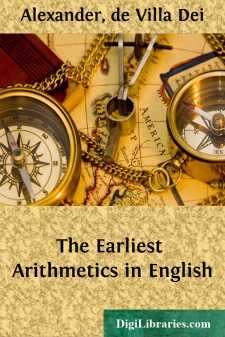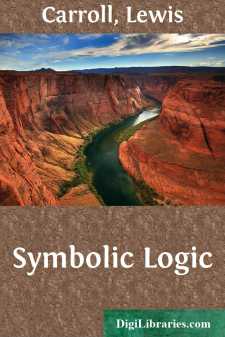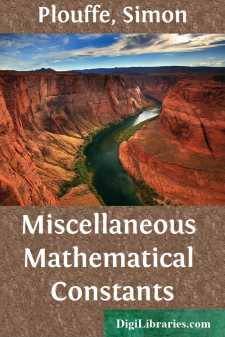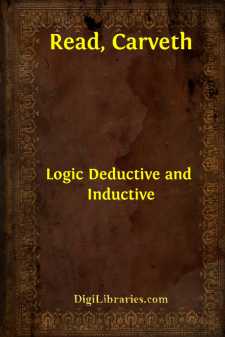Mathematics
Mathematics Books
Sort by:
by:
William Bedwell
SIR, Your acquaintance with the Author before his death was not long, which I have oft heard you say, you counted your great unhappinesse, but within a short time after, you knew not well whether to count your selfe more happie in that you once knew him, or unhappy in that upon your acquaintance you so suddenly lost him. This his worke then being to come forth to the censorious eye of the world, and as...
more...
by:
Unknown
Socrates: Well, here we are at the appointed time, Meno. Meno: Yes, and it looks like a fine day for it, too. Socrates: And I see our serving boy is also here. Boy: Yes, I am, and ready to do your bidding. Socrates: Wonderful. Now, Meno, I want you to be on your guard, as you were the other day, to insure that I teach nothing to the boy, but rather pull out of his mind the premises which are already...
more...
by:
P. Hampson
Oh, why should I be doomed to the degradation of bearing such a foolish appellation! A Girtham Girl! I suppose we have to thank that fiend of invention who is responsible for most of the titular foibles and follies of mankind—artful Alliteration. The two G’s, people imagine, run so well together; and it is wonderful that they do not append some other delectable title, such as ‘The Gushing Girl of...
more...
by:
John Dee
⧠The Translator to the Reader. Here is (gentle Reader) nothing (the word of God onely set apart) which so much beautifieth and adorneth the soule and minde of mã, as doth the knowledge of good artes and sciences: as the knowledge of naturall and morall Philosophie. The one setteth before our eyes, the creatures of God, both in the heauens aboue, and in the earth beneath: in which as in a...
more...
INTRODUCTION The number of English arithmetics before the sixteenth century is very small. This is hardly to be wondered at, as no one requiring to use even the simplest operations of the art up to the middle of the fifteenth century was likely to be ignorant of Latin, in which language there were several treatises in a considerable number of manuscripts, as shown by the quantity of them still in...
more...
by:
Lewis Carroll
CHAPTER I. INTRODUCTORY. The Universe contains ‘Things.’ [For example, “I,” “London,” “roses,” “redness,” “old English books,” “the letter which I received yesterday.”] Things have ‘Attributes.’ [For example, “large,” “red,” “old,” “which I received yesterday.”] One Thing may have many Attributes; and one Attribute may belong to many Things. [Thus, the...
more...
by:
Carveth Read
CHAPTER I INTRODUCTORY § 1. Logic is the science that explains what conditions must be fulfilled in order that a proposition may be proved, if it admits of proof. Not, indeed, every such proposition; for as to those that declare the equality or inequality of numbers or other magnitudes, to explain the conditions of their proof belongs to Mathematics: they are said to be quantitative. But as to all...
more...


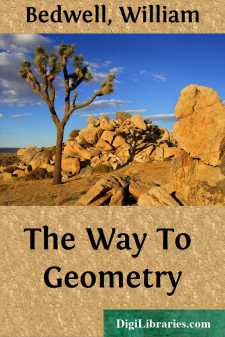
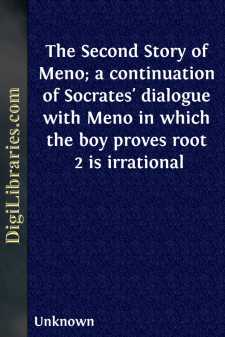
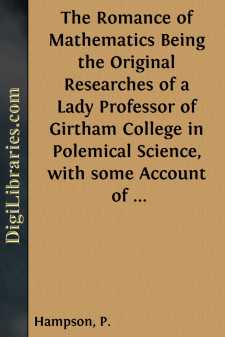
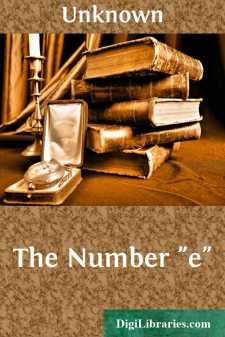
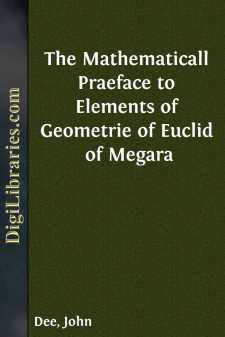
![The Golden Mean or Ratio[(1+sqrt(5))/2]](https://digilibraries-com.s3.eu-central-1.amazonaws.com/covers/762d190f-63a4-489a-b897-ff78516bd105.jpg)
